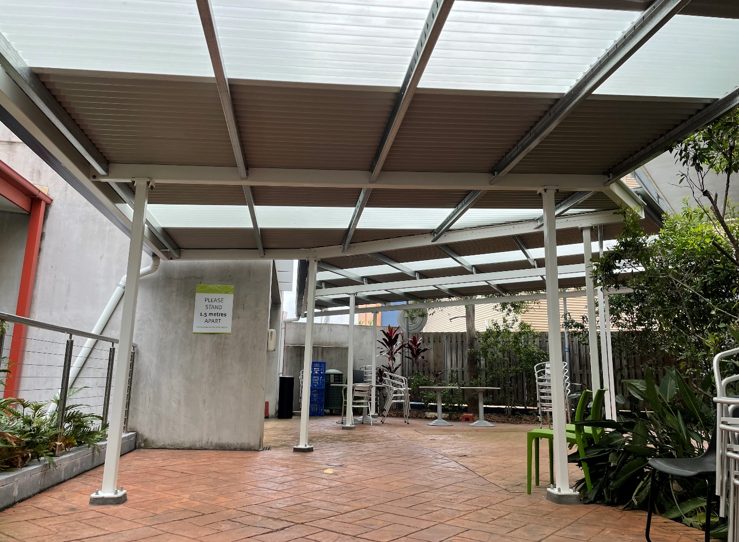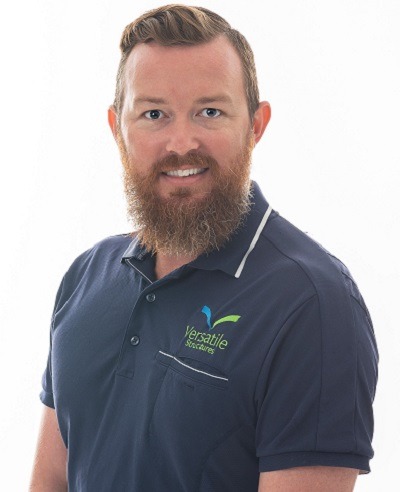YOU ARE HERE:

Polycarbonate Panels: An Ideal Choice for Shade Structures in Queensland
Jamie Howard In Polycarbonate Roofing
Queensland, Australia, known for its beautiful beaches, lush rainforests, and scorching summers, experiences intense heat and strong sunlight throughout the year. To combat the harsh weather conditions and provide relief from the sun’s relentless rays, shade structures have become an essential feature in this region. Among the many materials available for constructing shade structures, polycarbonate panels have emerged as a popular and effective choice. In this article, we will explore why polycarbonate panels are well-suited for shade structures in Queensland, Australia.
1. Understanding Polycarbonate Panels
Polycarbonate panels are a type of thermoplastic material renowned for their exceptional strength and impact resistance. They are engineered to withstand harsh environmental conditions, making them an ideal solution for various construction applications, including roofing, cladding, and shade structures. The panels are made by extruding polycarbonate resin into sheets of varying thicknesses, allowing for flexibility in design and applications.
2. UV Protection and Heat Resistance
One of the key reasons polycarbonate panels are favoured for shade structures in Queensland is their outstanding UV protection capabilities. These panels are coated with advanced UV inhibitors during manufacturing, offering up to 99.9% protection from harmful UV rays. This means that they effectively shield individuals under the structure from the risk of sunburn and long-term skin damage, making them an excellent choice for outdoor spaces where people gather.
Moreover, polycarbonate panels possess excellent heat resistance, efficiently blocking and diffusing a significant amount of solar heat. This feature ensures that the shaded area remains cooler, providing a comfortable and enjoyable space for relaxation, play, or work even on the hottest days.
3. Durability and Longevity
Queensland’s climate can be demanding, with intense heat, heavy rains, and occasional hailstorms. Fortunately, polycarbonate panels are designed to withstand such conditions. Their exceptional impact resistance and durability make them highly resistant to cracking, chipping, or breaking due to external forces. They are also weather-resistant, with excellent corrosion and chemical resistance, ensuring they maintain their appearance and performance over time.
The longevity of polycarbonate panels is another appealing aspect. High-quality panels can last well over two decades with proper maintenance, offering a cost-effective and long-term solution for shade structures in Queensland.
4. Lightweight and Easy Installation
Polycarbonate panels are notably lightweight compared to traditional building materials like glass or metal. This makes transportation and installation easier and more cost-effective. Additionally, their flexibility allows for easy customization and shaping, enabling architects and designers to create unique and aesthetically pleasing shade structures tailored to specific needs and preferences.
Moreover, the installation process for polycarbonate panels is relatively straightforward, further reducing project timelines and costs. When combined with durable support structures, these lightweight panels create robust shade solutions that are both practical and visually appealing.
5. Design Versatility
Another advantage of polycarbonate panels is their design versatility. They are available in various colours, finishes, and transparency levels, offering flexibility in design options. Whether creating a shaded play area for children, a stylish outdoor dining space, or a functional carport, polycarbonate panels can be tailored to complement the existing architecture and enhance the overall aesthetics of the space.
6. Energy Efficiency
Polycarbonate panels’ thermal insulation properties contribute to energy efficiency. By reducing heat transfer, these panels can help regulate the temperature inside shaded areas, reducing the need for cooling systems and energy consumption. This benefit is particularly valuable in the hot climate of Queensland, where cooling costs can be significant during the scorching summer months.
7. Environmental Sustainability
As sustainability becomes a critical consideration in construction projects, polycarbonate panels offer an eco-friendly option. They are fully recyclable, making them a sustainable choice for environmentally conscious builders and property owners. Moreover, their long lifespan reduces the need for frequent replacements, minimizing waste generation.
Conclusion
Polycarbonate panels have proven to be a highly effective and versatile material for shade structures in Queensland, Australia. Their exceptional UV protection, heat resistance, durability, and design flexibility make them an ideal choice for creating comfortable and appealing outdoor spaces. As the demand for shade solutions continues to grow in this sun-soaked region, polycarbonate panels will undoubtedly play a crucial role in providing protection and comfort for generations to come.
Share:
Jamie Howard - Director
Co-founder and Director Jamie has been hands-on in the shade and steel industry since leaving school. With over 15 years’ experience in shade, membrane and steel projects, Jamie is excited about the design opportunities shade structures offer in the commercial and industrial sectors. Jamie’s extensive design skills give him a competitive edge in situations with technical design complexity. He has won two personal industry awards for his designs, alongside many company-won awards.

